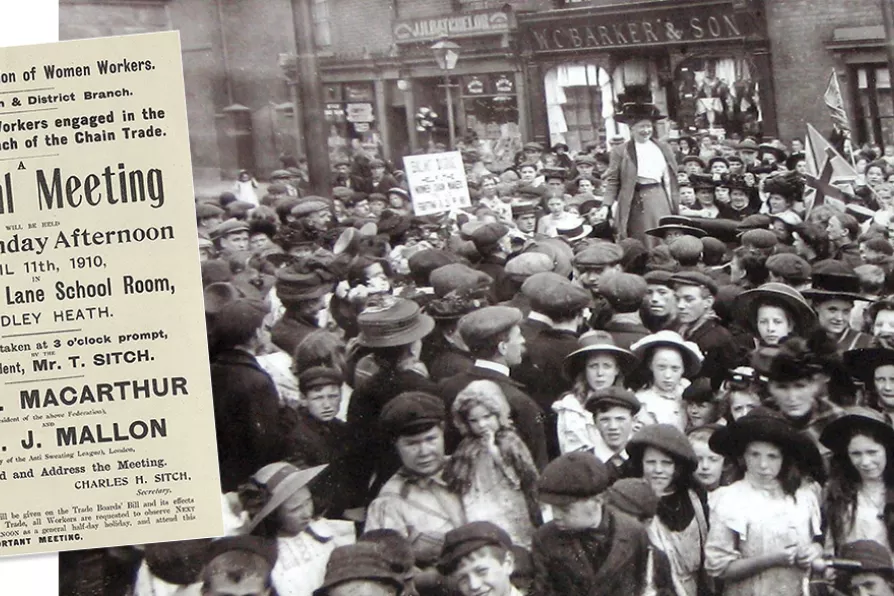As tens of thousands return to the streets for the first national Palestine march of 2026, this movement refuses to be sidelined or silenced, says PETER LEARY

 (L to R) Handbill for an April 11 1910 National Federation of Women Workers meeting to discuss the chainmakers' strike, with Macarthur's name, as president of the federation, prominent; Mary Macarthur addressing the crowds during the chainmakers' strike, Cradley Heath, Sandwell, West Midlands, England, 1910
[(L to R) Anonymous/Public domain - Edwin Beech/Black Country Living Museum/CC]
(L to R) Handbill for an April 11 1910 National Federation of Women Workers meeting to discuss the chainmakers' strike, with Macarthur's name, as president of the federation, prominent; Mary Macarthur addressing the crowds during the chainmakers' strike, Cradley Heath, Sandwell, West Midlands, England, 1910
[(L to R) Anonymous/Public domain - Edwin Beech/Black Country Living Museum/CC]
YOU might well be tempted to set up The National Anti-Sweating League after getting stuck in a tunnel on the rush-hour Northern Line, but a century ago “sweating” had a particular meaning.
In 1899, the House of Lords committee on sweating (look, I’m sorry, but if you're going to giggle every time, we'll be here forever) defined sweatshop labour by three criteria: it was underpaid, the hours were excessive, and the working conditions were unhealthy.
The point being that they meant bad pay, long days and crap conditions that were dramatically worse than the already dreadful norm.

‘Honest’ Tom Wharton’s 1682 drunken rampage through St Mary’s church haunted his political career, but his satirical song Lillibullero helped topple Catholic James II during the Glorious Revolution, writes MAT COWARD

While an as-yet-unnamed new left party struggles to be born, MAT COWARD looks at some of the wild and wonderful names of workers’ organisations past that have been lost to time

TUC Midlands marks 20 years of celebrating the 1910 chainmakers’ victory with a festival that connects historical lessons to modern struggles — because working-class history should inspire action, not just nostalgia, writes STUART RICHARDS

MAT COWARD tells the story of Edward Maxted, whose preaching of socialism led to a ‘peasants’ revolt’ in the weeks running up to the first world war










